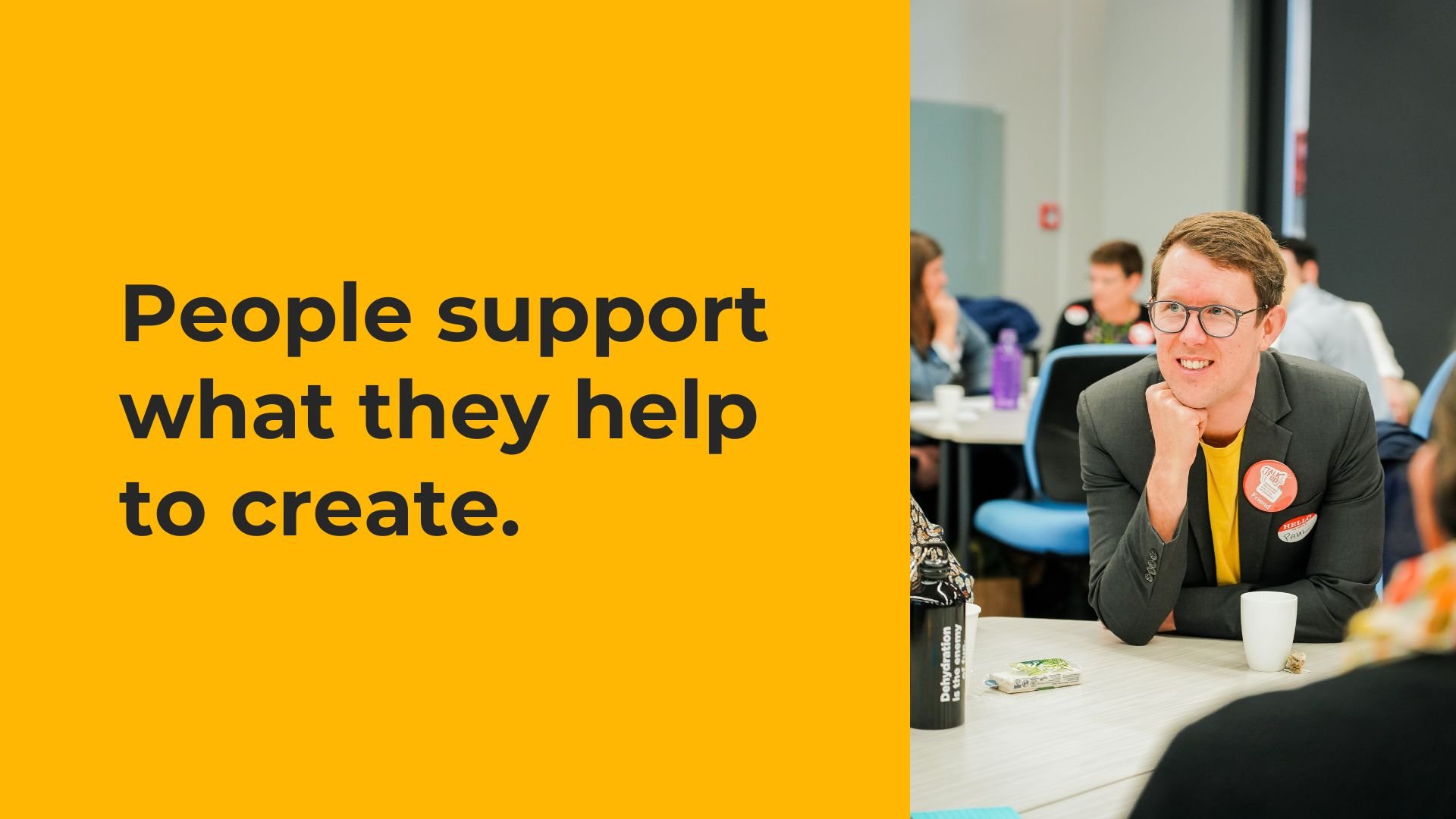💪People support what they help to create

One of the challenges of facilitating change is engaging people who have different views to you.
We get taught at school and university that our value lies in finding answers. We're taught to reason. To argue. To rationalize. To search for the correct answer (or the one our lecturer says is correct in their textbook). I wish more time was spent teaching us to question. To listen. To build relationships.
Last week I spoke to a public sector leader and asked "What do you see as the relevance of my work on leading by facilitation over the next 18 months?"
"Oh, it's crucial," she said.
"The last six months here in Aotearoa New Zealand have highlighted that iwi, communities and industry groups will not take things lying down."
"Managing stakeholders is something agencies still grapple with," she added.
"Especially because people change agencies and sectors so often. You have to start from scratch when you take on a new role in a new sector where you have few relationships. You need to inspire, negotiate and deliver... but you don't have any good will to fall back on."
People support what they help create
A friend asked me last year about the focus of my practice. I rambled on for a while and he nodded and said "I get that. People support what they help create."
That was a mic-drop moment for me.
The phrase summarises much of what I stand for. We all have opportunities in our work to involve (or exclude) people who will be impacted.
This plays out in small and big ways every week.
At the micro level, you could dictate the agenda of your team meeting; or you could agree the agenda together. You could make the meeting compulsory, or you could make it optional.
At the macro, we see this show up in how national and regional investment decisions are made.
A few years back, my local council announced that they were going to build a new library on the banks of the river. They completed the early design work and developed a fully costed business case. They made a big announcement and invited people to share their ideas on what would make it a great library.
But the problem was that many people didn't see the need for a new library. Some wanted a series of smaller libraries rather than one big flashy one. Others didn't support the proposed new location.
What if the community had been involved in creating the proposal? We'll never know. But I suspect the outcome may have been different. After all, people support what they help to create.